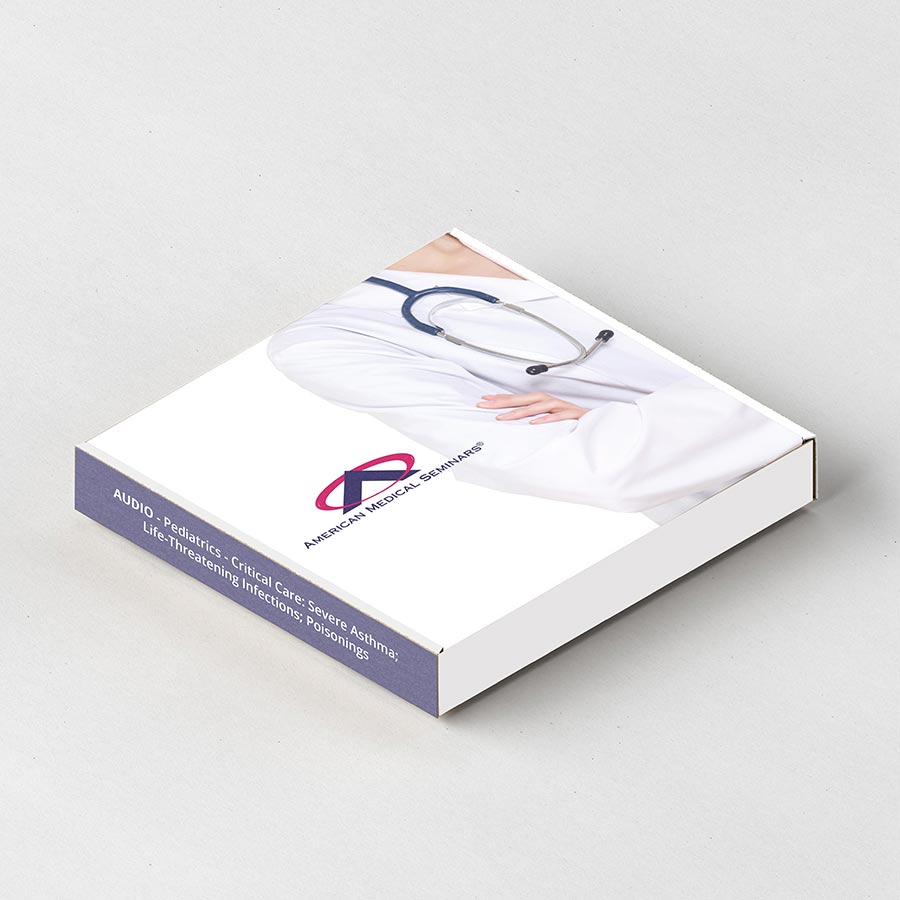Product Description
Title: Pediatrics – Critical Care: Fluid and Electrolyte Emergencies; Status Epilepticus/Febrile Seizures; Infants Behaving Badly
Faculty: Mark D. Joffe, M.D., F.A.A.P., John M. Loiselle, M.D., F.A.A.P., Richard J. Scarfone, M.D., F.A.A.P.
Original Release Date: July 1, 2018 Expiration Date: July 1, 2021
TOPIC 1: Fluid and Electrolyte Emergencies.
Upon completion of this session, using AAP guidelines and evidence-based medicine, the participant should be able to: EBM, GL, COMP
- Assess the degree of dehydration in children based on factors evaluated in recent published research.
- Utilize oral rehydration and subcutaneous rehydration in appropriately selected pediatric patients.
- Discuss the presentations and treatment of children with abnormalities in serum sodium and potassium concentrations.
TOPIC 2: Pediatric Status Epilepticus and Febrile Seizures.
Upon completion of this session, the participant should be able to: COMP, GL
- Explain the management of Status Epilepticus in the pediatric patient.
- Define appropriate laboratory and imaging studies in the acute care setting.
- Choose appropriate anticonvulsant agents for a child in status epilepticus.
- Educate parents regarding the prognosis of a child with simple febrile seizures.
- Evaluate the child with a simple febrile seizure according to AAP guidelines.
TOPIC 3: Infants Behaving Badly.
Upon completion of this session, using information from review articles, the participant should be able to: EBM, GL, COMP
- Develop a complete differential diagnosis for critically ill infants.
- Summarize the key management strategies in actual cases of infants presenting to a pediatric emergency department as per the referenced EBM and Guidelines.
- Administer appropriate diagnostic studies in the evaluation and management of infants with interesting and uncommon diagnoses.
- The receipt for any incentive-associated purchase will designate the value of the gift card separately from the cost of the learning activity.
- This incentive may have implications on your tax reporting obligations. Any reimbursed amount must be declared as personal income for tax purposes.


